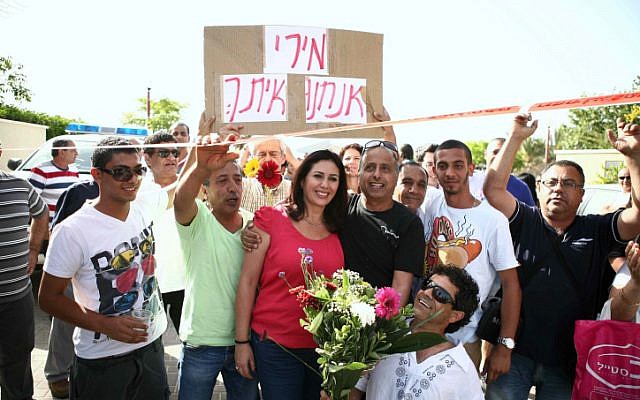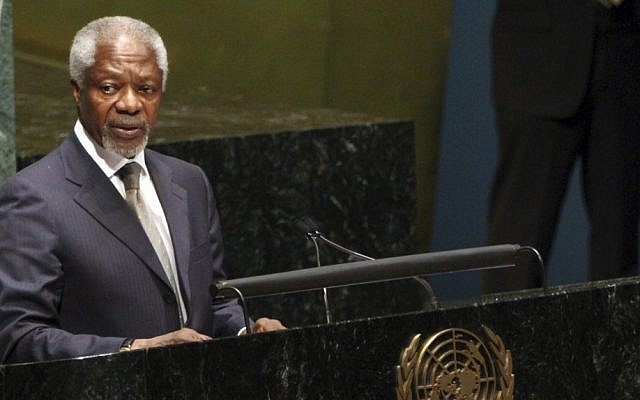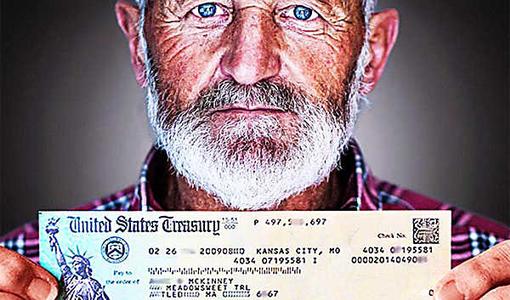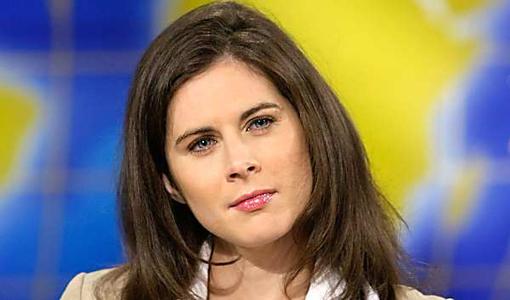52% of Israeli Jews agree: African migrants are ‘a cancer’
Peace Index finds 33% condone anti-migrant violence, establishes a direct correlation between racist attitudes and religiosity

Likud MK Miri Regev, center, surrounded by supporters last month. The sign reads "Miri we are with you." (photo credit: Yehoshua Yosef/Flash90)
Fifty-two percent of Jewish Israelis identify with the statement by MK Miri Regev last month that African migrants are “a cancer in the body” of the nation, and over a third condone anti-migrant violence, according to the Israel Democracy Institute (IDI) Peace Index for May 2012.
Broken down by political and religious affiliation, the monthly index’s findings reveal that among Jews there is a direct correlation between right-wing political affiliation and a racist attitude toward migrants. Thus, 86 percent of Shas voters and 66 percent of Likud voters polled expressed identification with Regev’s controversial statement, as opposed to 32 percent of Labor voters and four percent of Meretz voters.
The degree of religiosity attested to by respondents also accounted for a large disparity in the findings, with 81.5% and 66% of self-described ultra-Orthodox and Orthodox, respectively, agreeing with Regev’s statement, as opposed to 38% of secular Israelis.
Only 19% of Arab respondents agreed that the migrants were “a cancer.”
The poll also found that 33.5 percent of Jews and 23 percent of Arabs identified with recent acts of violence against African migrants perpetrated by demonstrators and residents of South Tel Aviv. According to the IDI this was “very surprising, considering that most people do not tend to openly report sympathy for acts that are broadly condemned by society.”
The Peace Index also gauged respondents’ opinions of foreign workers from various countries and found that workers from Africa were a larger source of concern for Israeli Jews than were workers from other continents. Thus, while between 30 and 40 percent of Jewish respondents were moderately or greatly disturbed by the presence of non-African foreign workers, that figure climbed to 56.7 when it came to workers from Ghana and Nigeria and 65.2 for Sudanese and Eritrean job seekers.
The report termed the findings “troubling” and “surprising,” especially considering the fact that 79.5 percent of respondents said that “where they live there are only a few, very few, or no” refugees or migrant workers.
“This raises doubt about the often-heard claim that it is direct exposure or vulnerability that accounts for negative positions and feelings toward the presence of foreigners,” the report said.
The survey was conducted among 609 respondents, a representative sample of Israel’s adult population.
READ MORE:
SPONSORED STORIES
Annan says international community must speak with ‘one voice’ to end Syria crisis
Joint UN and Arab League envoy warns the General Assembly of more massacres and impending civil war
7 Jun 2012, 9:38 pm 1

UN-Arab League special envoy to Syria Kofi Annan addresses the General Assembly on Thursday (photo credit: Mary Altaffer/AP)
UNITED NATIONS (AP) — International envoy Kofi Annan urged the world’s nations Thursday to “genuinely unite” behind a new effort to end the escalating Syrian conflict, warning that if things don’t change quickly the country will likely see brutal repression, massacres, sectarian violence and all-out civil war.
Annan told the UN General Assembly that his six-point peace plan is not being implemented, and he put the blame primarily on President Bashar Assad. And in a message aimed at the divided UN Security Council, he said there must be “consequences” for those obstructing peace efforts.
“Clearly, the time has come to determine what more can be done to secure implementation of the plan — and/or what other options exist to address the crisis,” Annan said.
The US and its European allies have tried unsuccessfully for months to threaten sanctions against Syria as the death toll has risen. But Russia and China, Syria’s main allies, vetoed two Security Council resolutions that threatened possible sanctions, and they indicated their continuing opposition in a joint statement after a summit in Beijing on Wednesday which also opposed any outside military interference or forceful imposition of “regime change” in Syria.
Annan said the unity of the international community behind his peace plan must now be taken to a new level to “chart a clearer course for a peaceful transition.”
“If we genuinely unite behind one process, and act and speak with one voice, I believe it is still possible to avert the worst and enable Syria to emerge from this crisis,” he said.
Against the backdrop of a new massacre in Syria, UN diplomats said Annan is expected to propose tasking a group of world powers and key regional players, including Iran, to come up with a strategy to end the 15-month conflict when he addresses a closed meeting of the Security Council on Thursday afternoon.
Annan will present the UN with a plan for creating a “contact group” whose final proposal must be acceptable to Russia and China as well as the US and its European allies, they said.
In the evening, Annan is scheduled to have dinner with ambassadors from the council’s five permanent nations — the US, Russia, China, Britain and France, a council diplomat said.
There has also been talk about a meeting of key world leaders on the sidelines of the G20 summit in Mexico later this month to discuss the growing crisis in Syria and possible next steps, the diplomats said, speaking on condition of anonymity because consultations have been private.
Russia’s Foreign Minister Sergey Lavrov told reporters in Beijing on Wednesday that Moscow is proposing an international conference on Syria to try to persuade all Syrian opposition groups to respect Annan’s plan, end all violence and sit down for talks.
He said it should include “countries which have a real influence with various opposition groups,” including the permanent members of the Security Council, Turkey, Iran, the Arab League, the Organization of Islamic Cooperation and the European Union.
The violence in Syria has grown increasingly chaotic in recent months, and it is difficult to assign blame for much of the bloodshed. The government restricts journalists from moving freely, making it nearly impossible to independently verify accounts from either side. The opposition blames government forces and militias that support them known as shabihas while the government blames rebels and “armed terrorist groups.”
In the latest violence, activists said government forces killed nearly 80 people, including women and children who were shot, hacked to death and burned in their homes. UN Secretary-General Ban Ki-moon said unarmed UN monitors came under fire Thursday as they tried to reach the scene.
The reports are bound to reinforce the growing belief that Annan’s six-point peace plan is unraveling.
The violence comes on the heels of a massacre on May 25 and 26 in Houla, a cluster of villages in the central Homs province, which left more than 100 dead, including many women and children gunned down in their homes. UN investigators blamed pro-government gunmen for at least some of the killings, but the Syrian regime denied responsibility and blamed rebels for the attacks.
At the start of the General Assembly meeting, President Nassir Abdulaziz Al-Nasser asked the 193-member world body to observe a minute of silence “to mourn those whose lives were killed by these brutal actions in Syria.”
Annan expressed his “horror and condemnation” at the new massacre.
“Those responsible for perpetrating these crimes must be held to account,” he said. “We cannot allow mass killing to become part of everyday reality in Syria.”
Ban called reports of another massacre “shocking and sickening,” saying “each day seems to bring new additions to the grim catalog of atrocities.”
Ban said it has been evident for many months that Assad and his government “have lost all legitimacy,” adding that “any regime or leader that tolerates such killing of innocents has lost its fundamental humanity.”
The UN chief strongly backed Annan’s call for unity, saying the international community must recognize that the inability of the government or opposition to engage in political dialogue “makes the prognosis extremely grave.”
Ban said the Annan plan remains the centerpiece of UN efforts, but in view of the deteriorating situation “I would welcome further international discussion on how we can act more effectively.”
“No one can predict how the situation in Syria will evolve,” the secretary-general said. “We must be prepared for any eventuality. We must be ready to respond to many possible scenarios.”
Syria’s UN Ambassador Bashar Ja’afari said an unjustifiable massacre is taking place in his country, but the government is not responsible. He also said “the government of Syria has spared no efforts to implement its part of the Kofi Annan plan.”
Arab League chief Nabil Elaraby, who also addressed the assembly, called on all Arab states to recall their ambassadors and halt all diplomatic contact with the Syrian government. Earlier this month, it urged the Security Council to impose sanctions on Syria, a move welcomed Thursday by US deputy ambassador Rosemary DiCarlo.
Copyright 2012 The Associated Press.
READ MORE:
SPONSORED STORIES

![[Interview] Samsung's Justin Denison Reveals Galaxy S9 and S9 Plus [Interview] Samsung's Justin Denison Reveals Galaxy S9 and S9 Plus](https://images.outbrain.com/transform/v3/eyJpdSI6IjYyZjNmNTE1NTk2Y2M1ZTEwNDlmZjY3N2VlMmEzZjA4ZGQ2NzRhOTdkMjZhMzVkNzc0NjhkZDVjMDNiYjViOGIiLCJ3IjozNDAsImgiOjIwMCwiZCI6MS41LCJjcyI6MCwiZiI6MH0.jpg)


![[Pics] Rarely Seen Photos Not Suitable For History Books [Pics] Rarely Seen Photos Not Suitable For History Books](https://images.outbrain.com/transform/v3/eyJpdSI6IjVhZWY0ZDJiNjgzMDFlZjY3YWRjNDNjNGM5ZjBiMDFmMTJlMjQ4ZmFhYmE2MDUzMDlhOTcxNDA2NDgxNGI3ZjUiLCJ3IjozNDAsImgiOjIwMCwiZCI6MS41LCJjcyI6MCwiZiI6MH0.jpg)



![[Pics] Man Buys Russian Tank Off eBay and Finds A Huge Surprise Inside [Pics] Man Buys Russian Tank Off eBay and Finds A Huge Surprise Inside](https://images.outbrain.com/transform/v3/eyJpdSI6Ijg0OTNhOTQ1NTQ0Y2IwNGExNTU0ZmYzNzQ3Njg4NDUwMTBiMzdjYjVmMDIzM2IwMTVhZTJlMDgwZDM2N2E1ZmYiLCJ3IjozNDAsImgiOjIwMCwiZCI6MS41LCJjcyI6MCwiZiI6MH0.jpg)
![[Gallery] Why Clint Eastwood Will Never Discuss His Military Service [Gallery] Why Clint Eastwood Will Never Discuss His Military Service](https://images.outbrain.com/transform/v3/eyJpdSI6IjYxZDNiMDliNWUzMGY0OGJmYzM4Yzg4NGE4YmM2Mzc0ZmJhNGU1ZmM3ODRlNmY1OTBlNjk1YjI1Y2VhMWExYzMiLCJ3IjozNDAsImgiOjIwMCwiZCI6MS41LCJjcyI6MCwiZiI6MH0.jpg)




COMMENTS